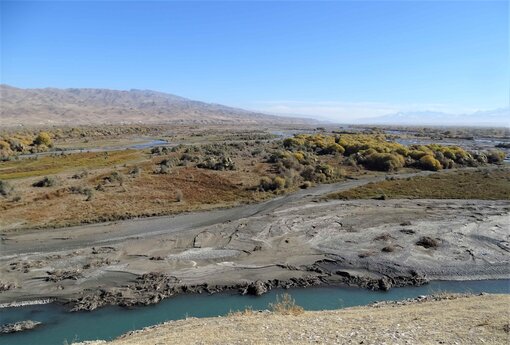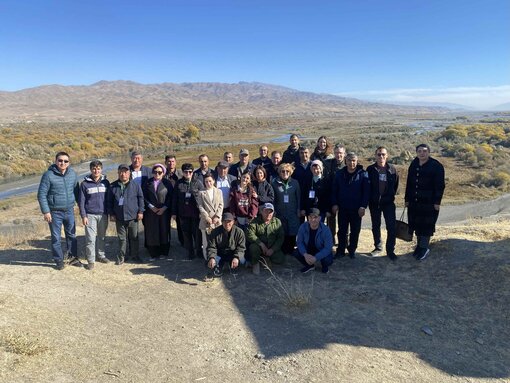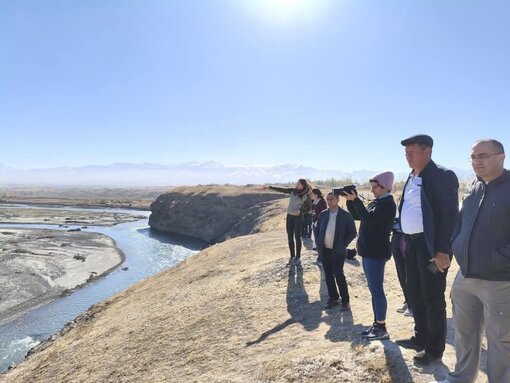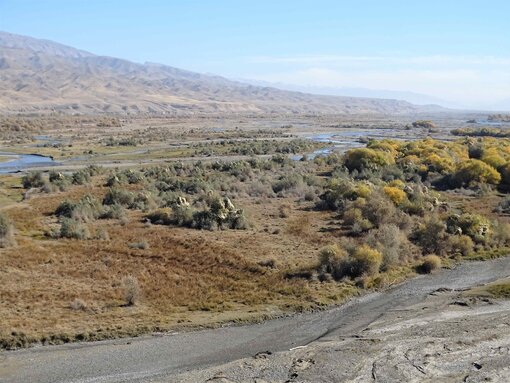Exchange on achievements and challenges
The event, organized by the Michael Succow Foundation (MSF) in partnership with GIZ under the Regional Programme ILUCA, brought together environmental authorities, protected area administrations, experts, and NGOs to reflect on recent achievements and jointly plan future cooperation in the Zarafshan Valley.
Tugai forests: One of Central Asia’s Most Threatened Ecosystems
The Zarafshan Valley – linking two countries Uzbekistan and Tajikistan – hosts one of Central Asia’s most threatened ecosystems – the tugai forests along the Zarafshan River. These forests provide habitat for endangered and endemic species such as the Bukhara deer, the Zarafshan ring-necked pheasant, and the Central Asian otter.
Project progress in the Zarafshan Valley
Within an ILUCA subproject of MSF, project partners over the last two years have jointly achieved significant progress:
- assessing management effectiveness in the two protected areas of the Zarafshan Valley,
- strengthening institutional and technical capacities through cross-border trainings,
- developing standardized biodiversity monitoring guidelines,
- enhancing communication with local communities.
Another important part of the project was a number of studies about transboundary conservation and cooperation between the two countries.
Results and next steps
The Round Table served as an important opportunity to share and consolidate these experiences. Based on that, participants reviewed a Joint Action Plan for future transboundary cooperation in Zarafshan Valley and identified funding options for its implementation.
As a result, the according political partners in Uzbekistan and Tajikistan – the Forestry Agency under the Government of Tajikistan, as well as the Ministry of Ecology, Environmental Protection, and Climate Change of Uzbekistan – expressed their willingness to continue collaboration within a Memorandum of Understanding (MoU).
The Succow Foundation was commissioned with drafting the MoU and supporting the subsequent signing process.
Photos: M. Oev; N. Marmasinskaya; GIZ
![[Translate to EN:] Banner Stiftung](/fileadmin/_processed_/b/c/csm_banner-stiftung_fee6c1c492.jpg)




